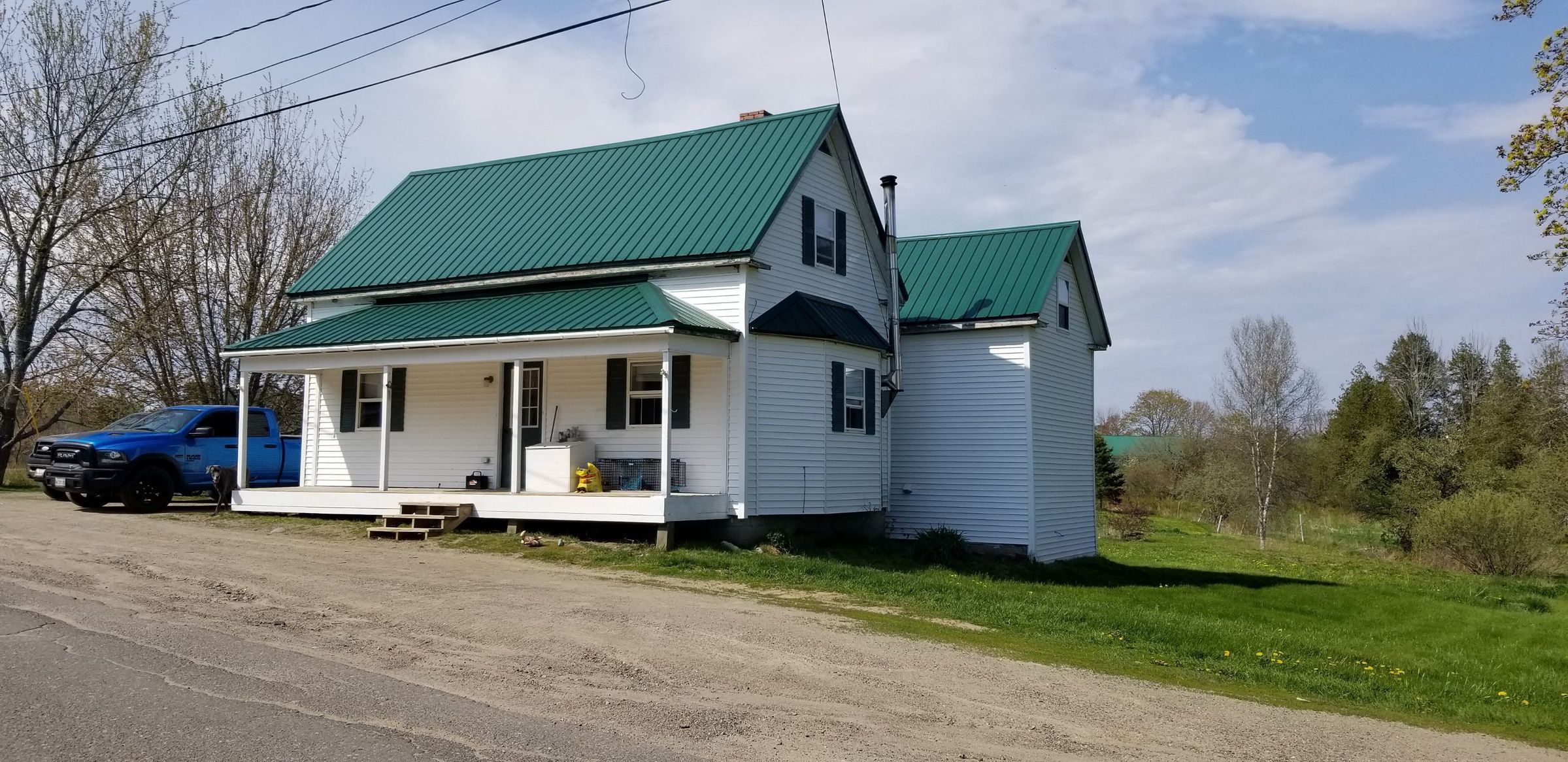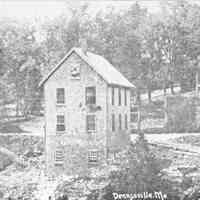Florriman Wilder House, Dennysville, Maine
Florriman Wilder, whose machine and carpenter shop on the Dennys River became Kilby's store, built a home at the top of Harrison Avenue, across from Lyman Gardner's house. Florriman Wilder was a metalsmith who operated a machine and carpenter's shop on the banks of the Dennys River, in a building that later became Kilby's General Store. He is remembered particularly for making the first continuous tread, now known as the caterpillar track, designed to get big logs out of the woods in mud season. Alfred Kilby solved the problem by inventing a traction truck, motivated by horses or oxen, which utilized the endless track concept. It was the ancestor of the many caterpillar track vehicles now in military and industrial use. The actual builder of the traction truck, which had four wheels on either side that rode easily on a revolving metal track, was Florriman Wilder. Recognition was granted to Alfred Kilby by the United States Patent Office on May 13, 1902. This antique logging vehicle was presented to the Smithsonian Institution in the 1950's by June (Kilby) Hallowell and Katherine (Kilby) Schaeffer, great-granddaughters of the inventor, Alfred Kilby. When local resident, Clyde Mattheson, was on duty in the Aleutian Islands during World War II, he saw caterpillar tractors in use that bore the label "Kilby tread."
Contemporary Photographs of the Dennys River AreaPhotos for Map



